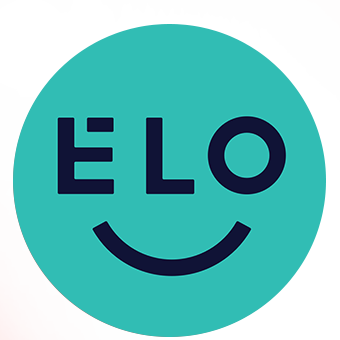How to formulate your mentoring goals
In mentoring, setting goals keeps you on track and guarantee that you have a solid foundation in your mentoring relationship.
Goals tailored to your professional reality
It's rewarding to set goals, but what's even more satisfying is how you feel when you see the progress you've made. In fact, according to a survey conducted by Robert Half, a sense of accomplishment at work is the most important factor in the famous recipe for happiness at work for professionals aged 34 and under.
That said, it's important to set realistic goals that fit your work reality. Think about the skills you would like to develop or update, your career aspirations or your daily challenges. In short, those things you want to refine that will help you be the best professional version of yourself! Remember, the clearer your goals are, the easier it is to measure your progress.
Two methods for formulating goals
To target your goals, you need to start from your needs.
Here are two approaches that can help you in this quest: the SMART method and the alternative method inspired by "gap analysis".
The SMART method
This method is the more complex of the two methodologies. However, it allows you to have a well-defined objective afterwards.
The different criteria to be respected make it a tool often appreciated and used in all kinds of contexts (including mentoring).
If you choose this approach, your objective must be:
- Specific - The expected result is simple and clearly defined.
- Measurable - It is quantifiable and has indicators so that it can be measured.
- Achievable / Ambitious - It requires you to step out of your comfort zone just enough to make progress.
- Realistic - It takes into account different constraints ($, resources, etc.)
- Time-bound - It sets out a time frame in which the goal will be achieved.
Example: Get a promotion
- Specific - Getting a promotion within an organisation.
- Measurable - Moving up a level.
- Achievable / Ambitious - Having new tasks and being responsible for larger projects.
- Realistic - Participate in training sessions, self-study and ask for more tasks to develop your skills and knowledge.
- Time-bound - Within a year.
The Alternative Method
This alternative method is easier to apply, as it is based on three key questions:
1. What is the current situation: your position, responsibilities, etc.?
.2 What is the desired situation?
3. How do you get from situation 1 to 2? What knowledge, skills and experience do you have? What do you need to develop (as expertise, know-how and interpersonal skills)? What obstacles are there in front of you? Who should you contact?
Do you need help in formulating your objectives?
Some of you may find it difficult to identify your needs and goals before contacting a mentor. Of course, starting a conversation with a mentor with specific needs and goals in mind can make the mentor's job easier. However, a mentor can help you define your needs and goals once the relationship has begun. If you signed up for Elo, it's because you thought that mentoring would be beneficial to you, and that in itself is not far from being a need.
Here are some examples of goals to inspire you:
- Deepen some skills related to your field;
- Learn how to manage a new function at work;
- Connect with other professionals to discuss issues;
- Share your expertise with other professionals in your field.
- Develop skills related to my field
- Expand my professional network
- Start or complete an entrepreneurial project
- Successfully enter the job market
- Better manage stress or difficult work-related situations
- Get a promotion and plan my career
- Better juggle work and family life;
If you have defined several goals, it is advisable to prioritise them. Of course, your goals may change and evolve over time. Keep in mind that the progress made during the mentoring relationship allows you to grow professionally and personally.
If possible, think about action plans (i‧e., steps to achieve your goals) beforehand. When you meet your mentor, tell him or her about your best learning styles so that he or she can offer you personal guidance. With this groundwork, you are guaranteed to have more effective and relevant meetings.
